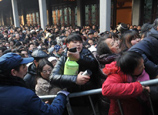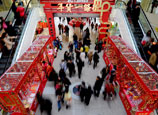
Not long before, Washington had still seemed to remain cautious when dealing with the issue of the Diaoyu Islands. The Wall Street Journal on Thursday reported that Kurt Campbell, the top U.S. diplomat for East Asia, recently issued a subtle but clear message to Japan, suggesting that Tokyo tone down its rhetoric and actions in its dispute with Beijing.
In addition, The Journal said Campbell "maintained a neutral tone in describing the situation."
However, Clinton's recent remarks have indicated clearly that the U.S. stance on the issue was contradictory.
Clinton's comments would be seen as backing Japan's rightwingers, making it more complicated to solve the issue.
Thirdly, Clinton's remarks actually jeopardized the national interests of the U.S. Since America unveiled its "pivot to Asia" strategy, what it would do reflects its Asian-Pacific strategy.
Will it help promote regional security and prosperity and thus be able to share the results of economic development of the region? Or will it add fuel to the flames and become a troublemaker?
The irresponsible U.S. remarks concerning the Diaoyu Islands will worsen, rather than relieve the tension over the issue.
With intensified tension and deteriorated security within the region, no less the prospect of reviving militarism in Japan, the security and economic recovery of the U.S. would be largely affected. It is unwise for the politicians to act shortsightedly.
Instead of pursuing immediate interests, Washington should take its general relations with China into consideration and adopt a responsible attitude in regard to the issue of the Diaoyu Islands.

















 'Collective children's weddings' held in kindergarten
'Collective children's weddings' held in kindergarten


![]()
